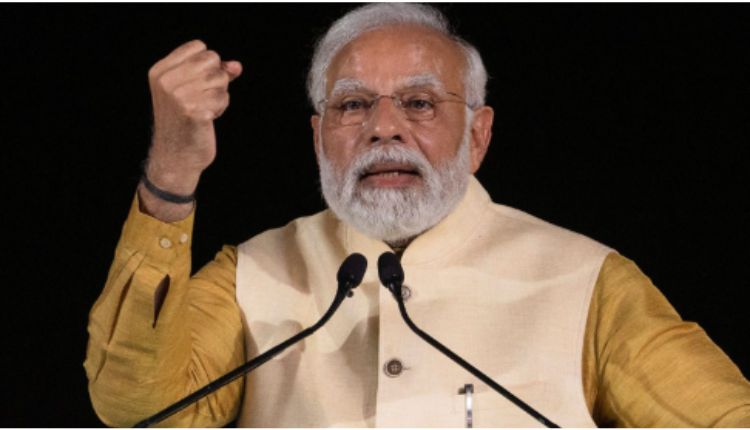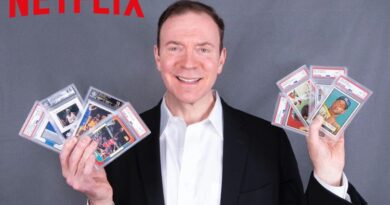Watch The Controversial BBC Documentary “India: The Modi Question” Online
The two-part documentary titled ‘India: The Modi Question’ examines the prime minister’s role in anti-Muslim violence during his tenure as chief minister of Gujarat. His government has imposed an emergency rule to block the series from being viewed online, but users are finding ways around it.
The BBC has said it stands by its reporting. International press watchdogs have condemned the use of emergency laws to restrict access to critical media coverage.
What Is The Documentary All About?
The two-part bbc documentary on modi “India: The Modi Question” revisits allegations about Prime Minister Narendra Modi’s role in anti-Muslim violence in the western state of Gujarat in 2002 that left more than 1,000 people dead. It cites a British Foreign Office report from the time that accuses Modi of “directly responsible” for the riots and of creating a climate of impunity for Hindu mobs to act against Muslims. The documentary has angered the Modi government, which has called it a propaganda piece that lacks objectivity and reflects a continuing colonial mindset. Its broadcast was banned in India, and the government has ordered that the film be blocked online. However, some enterprising Indians have managed to circumvent the censorship by using digital tools like VPNs.
The documentary focuses on the aftermath of the 2002 riots, which were triggered when a train carrying Hindu pilgrims was set on fire, killing dozens. The blame was placed on Muslims, and a wave of retaliatory violence began with Hindu mobs attacking Muslim-owned homes and businesses. Modi has long rejected accusations of involvement in the riots and has received a clean chit from India’s Supreme Court. The documentary aired in the United Kingdom on January 17 and is scheduled to air in India later this month.
Following its premiere, the BBC faced an outpouring of protests from members of parliament in both the UK and India. Conservative MP Bob Blackman called it a “hatchet job” and Labour MP Rami Ranger accused the BBC of promoting “sensationalism.”
The controversy has come as Modi prepares to host a meeting of world leaders this week, including Egyptian President Abdel Fattah el-Sisi and U.S. President Donald Trump, and as activists continue to push for meaningful discussions about India’s human rights record under Modi.
India’s Foreign Ministry said the film lacked objectivity and was biased against Modi. The ministry has urged YouTube and Twitter to remove the documentary, though it remains available on several websites. Students in India have been staging unauthorized screenings of the film, but have been threatened with arrest and violence by local rightwing groups. The BBC has stood by the documentary, calling it “rigorously researched according to the highest editorial standards.”
What Is It Trying To Tell Us?
The documentary, India: The Modi Question, is one of the first to delve into the allegations surrounding Modi and his alleged role in the 2002 Gujarat riots. The film examines the background of Modi, including his association with a right-wing Hindu organisation and his rise through the political ranks. It also explores the controversies that dogged him early in his career, and his response to the deadly riots in Gujarat.
The two-part documentary aired in the UK in January, and has since caused controversy in India. The Indian government has called the documentary “hostile propaganda,” saying it lacks objectivity and reflects a colonial mindset. They have also blocked the documentary on social media and have raided the offices of the BBC.
But the BBC has defended the documentary, saying it was “rigorously researched.” They have also said that they spoke to a wide range of witnesses and experts. The documentary has also been praised by many international observers, including former U.K. Prime Minister Jack Straw, who called it “an important contribution to the public discourse on India”.
One of the main claims in the documentary is that there is evidence of Modi’s involvement in the riots. The film cites a secret British government report which states that “Modi was directly responsible for encouraging the mobs to attack Muslim homes and businesses.” It also claims that the state government acted as an enabler, by providing security to the rioters and refusing to take action against them.
Despite these allegations, the Supreme Court gave Modi a clean chit for his actions during the riots. But the documentary has reopened old wounds and drawn attention to human rights violations in India. It comes at a crucial time, as the country seeks to build strong partnerships with western nations.
The documentary has been criticized for its portrayal of Modi as a dangerous figure who promotes hatred against minorities. But the truth is that these controversies have been raised by a number of reputable sources, and the BBC’s attempt to investigate the situation is legitimate. The fact that India’s government has reacted so aggressively to the documentary shows how much this issue matters to them.
Why Is The Documentary Controversial?
The two-part BBC documentary, titled India: The Modi Question, is controversial in part because it was banned by the Indian government while being broadcast in the UK. The Indian government claimed that the documentary unfairly criticised PM Modi for his role in the 2002 Gujarat riots while he was the state’s chief minister. The riots killed more than 1,000 people, mostly Muslims. The documentary accuses the state government of allowing violence to occur in a “climate of impunity”.
The documentaries quotes a former top British diplomat who says that the communal riots were planned by the Vishwa Hindu Parishad (VHP), an affiliate of the Rashtriya Swayamsevak Sangh, a Hindu nationalist paramilitary organisation that is affiliated with Modi’s party, and that Modi did not intervene to stop the violence. It also quotes a report by a judicial inquiry commission which found that the police failed to protect Muslims during the riots. The BBC has defended the documentary, saying it was “rigorously researched according to the highest editorial standards”.
In response to the BBC’s claims of impartiality, the Indian government ordered YouTube and Twitter to remove links to the film from their websites, and it ordered the BBC to remove all content related to the controversy from its website. It also asked tax officials to inspect the BBC’s offices and began an investigation into its business activities in India.
Despite this, the BBC has refused to back down from its criticism of the Modi government. Many members of parliament, including Conservative MP Bob Blackman and Labour’s Rami Ranger, have criticized the BBC for airing the documentary. One Tory peer even wrote to the head of the BBC asking if the corporation’s Pakistani-origin staff were involved in the production of the programme.
The documentary is also controversial because it exposes the alleged human rights abuses committed by the Modi government. These violations are occurring at a time when the world’s biggest economies, including the US and UK, are forging close trade ties with India and seeking to cultivate an image of the country as a global leader.
What Is The Impact Of The Documentary?
The documentary, titled India: The Modi Question and aired in the UK in January, has sparked an uproar in India. The government has denounced it as propaganda and banned sharing of clips on social media. The Indian foreign ministry has said the BBC’s “bias and lack of objectivity, and frankly continuing colonial mindset is blatantly evident.”
The two-part documentary criticizes Modi’s leadership in the western state of Gujarat during deadly sectarian violence in 2002 that killed more than 1,000 people, mostly Muslims. Activists say the death toll is much higher. At the time, Modi was chief minister of the state and has denied allegations that he did not do enough to stop the violence, which began after a train carrying Hindu pilgrims was bombed and later burned by mobs.
Several Indian politicians, including senior members of the ruling Bharatiya Janata Party (BJP), have called for the BBC to be shut down. Despite the controversy, the documentary has received international acclaim and has been shown at film festivals around the world.
Amid heightened concerns about Islamophobia, the documentary offers a fascinating look at tensions between the Muslim minority and the country’s powerful prime minister. Narendra Modi and his government reject any suggestion that their policies reflect prejudice towards Muslims, but many observers argue that the government has a hardline anti-Muslim agenda.
Watch India: The Modi Question and more acclaimed documentaries on BBC Select today. Restrictions apply.
Featuring interviews with journalists, lawyers, activists, and ordinary citizens, the film explores the deep divisions that have developed between India’s Muslim community and its leaders, particularly the ruling BJP. The film also looks at alleged discrimination against minorities by the US and UK, which have close economic and political relationships with India. In an attempt to balance the views of all parties, the film includes interviews with local BJP leaders who were in Gujarat during the riots, as well as with those who oppose them. Ultimately, the documentary seeks to understand why and how the conflict arose. It also highlights the impact of the violence on the victims’ lives.
Conclusion:
The BBC documentary on Narendra Modi provides a comprehensive insight into the life and political journey of one of India’s most influential leaders. Through detailed research and interviews, the documentary sheds light on Modi’s rise from a humble background to becoming the Prime Minister of India. It explores his leadership style, policy decisions, and the impact of his governance on the nation. While the documentary presents both praise and criticism, it offers viewers a chance to understand the complexities of Modi’s leadership and his role in shaping India’s future.
FAQs:
What are some key achievements of Narendra Modi as Prime Minister?
A: As Prime Minister, Narendra Modi implemented various initiatives and policies that aimed to transform India’s socio-economic landscape. Some key achievements include the introduction of the Goods and Services Tax (GST), the “Make in India” campaign to promote manufacturing, the Pradhan Mantri Jan Dhan Yojana for financial inclusion, the Swachh Bharat Abhiyan for sanitation, and the Ayushman Bharat scheme for universal health coverage. He also launched the Startup India program to foster entrepreneurship and has focused on improving infrastructure through initiatives like the Sagarmala Project and Bharatmala Project.
What are some criticisms against Narendra Modi’s leadership?
A: Narendra Modi’s leadership has faced criticism on various fronts. One of the main concerns raised by critics is his government’s handling of communal tensions and religious freedom, with some accusing him of not doing enough to curb incidents of violence and hate crimes. Additionally, there have been concerns about the implementation of demonetization and the Goods and Services Tax (GST), which caused short-term disruptions to the economy. Critics have also pointed out issues related to the handling of the agrarian crisis and unemployment. Furthermore, some argue that the government’s approach to environmental policies and human rights has been inadequate. It’s important to note that opinions on Modi’s leadership vary widely, with both supporters and detractors expressing their viewpoints.



